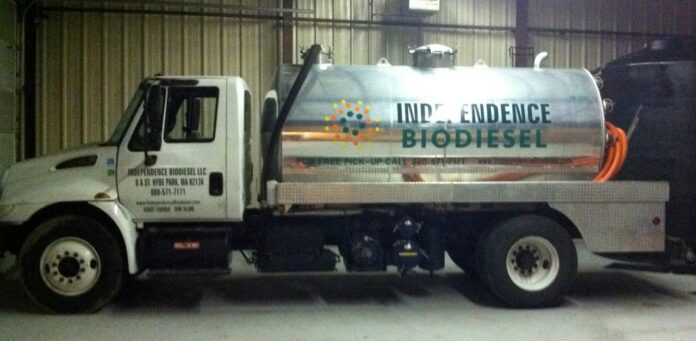The City of Pittsburgh will increase the biofuel conversion solution provided by Optimus spreading the facility to 20 additional public works trucks.
The city will also deploy 5000 gallon biofuel storage as well as refilling station with 100 trucks capacity, designed by Optimus.
Earlier, the Optimus’ Vector biofuel conversion system tested for 18 months by authorities on the International trucks used for garbage collection was found successful.
According to city experts, the garbage and recycling trucks are the biggest emission contributors due to their fuel consumption and their low gas mileage.
The city will offset the costs of the new solution with funding provided by the state’s Department of Environmental Protection Alternative Fuels Incentive Grant (AFIG) program and by Innovation Works’ Technology Commercialization Initiative (TCI) funding.
The city’s total solution includes Optimus’ bolt-on biofuel conversion system, a biofuel refueling station, and pure biofuel, either pure biodiesel (B100/B99) or Optimus-grade renewable diesel.
20 trucks will be configured with Optimus’ Vector, an EPA-approved, bi-fuel (diesel/biofuel) conversion system without significantly modifying, replacing, or rebuilding the engine.
Optimus’ Vector system is compatible with all modern emission after-treatment systems.
To manage fueling operations, the city is adding additional refueling facilities at the 29th street garage to include a dedicated pure biofuel station.
The challenge was to implement a solution that can heat the biofuels during cold weather while minimizing operational heating costs.
Optimus engineered an energy-efficient solution by creating a multi-stage holding tank that heats only the volume of fuel that will be dispensed in the near-term which serves to reduce the overall heating demands by an expected 70 percent.
Optimus is planning deployments in the near future across a wide range include those from both government and commercial sectors.
The solution does not require expensive new fuel stations, modifications to maintenance facilities, or cost prohibitive truck conversions.
Through these efforts, the city aims to reduce their overall emissions as demanded by the Pittsburgh Climate Action Plan.
The plan targets to reduce overall greenhouse gases generated by the city by 20 percent between 2003 and 2023.
The Optimus solution helps to reduces lifecycle emissions over 80 percent and fuel costs up to 25 percent for the City.
Sabeena Wahid
editor@greentechlead.com

